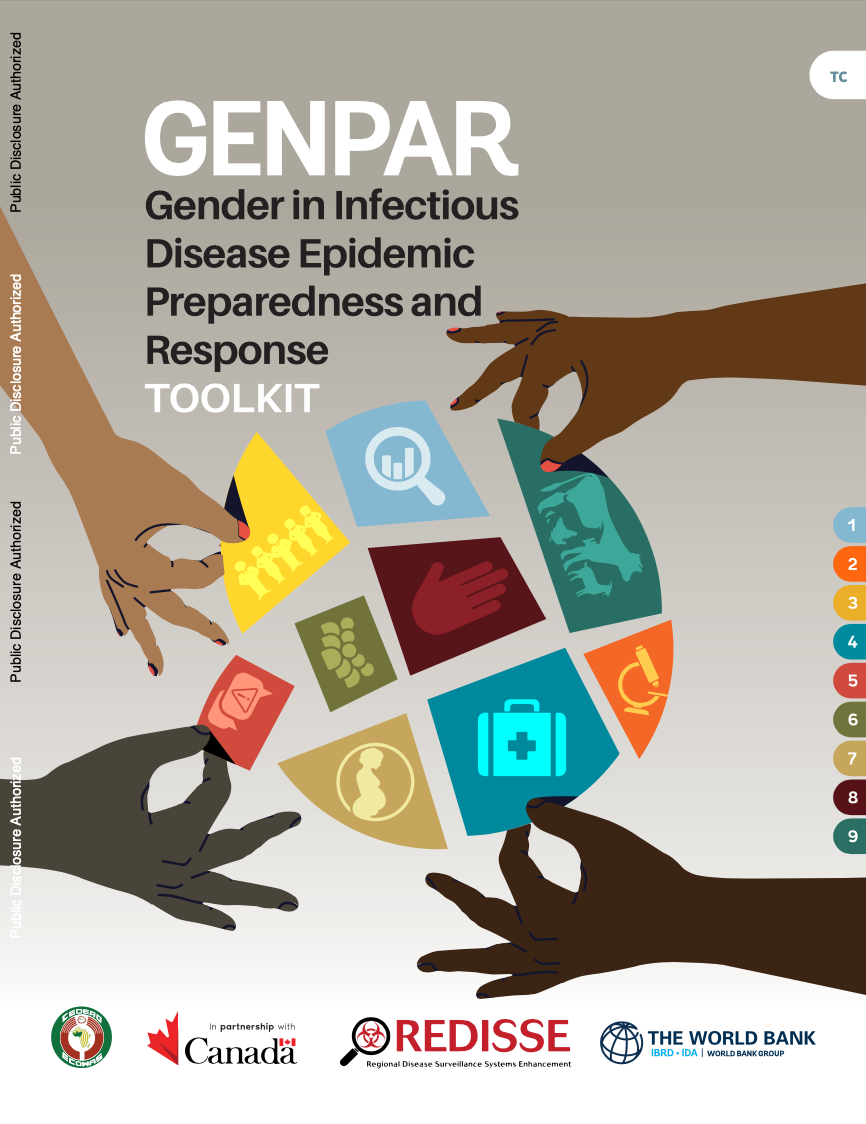Gender in Infectious Disease Epidemic Preparedness and Response (GENPAR) Toolkit
Sex and gender are different though related concepts that play an important role in public health, including in the transmission and course of infectious disease outbreaks. Gender norms contribute to differentials in disease-related risks between men and women, as well as in care, treatment, and outcome of disease, through their determination of sex differential behaviors, access to and control over resources, and agency over aspects of life such as decision-making and mobility. Gender-unequal norms are typically likely to disadvantage women compared to men in an epidemic. A failure to maintain essential services, especially related to maternal and child health, also impacts women more than men. Health emergencies can also increase women’s risks of sexual and gender-based violence (SGBV).
Women may face a higher risk of infection in disease outbreaks than men because they make up the majority of frontline health workers. At the same time, where women have been engaged they have been an important part of the solution. Gender in Preparedness and Response Toolkit (GENPAR) was developed under the World Bank Group’s Regional Disease Surveillance Systems Enhancement (REDISSE) Program to fill gaps in the availability of tools and guidance to integrate gender in infectious disease epidemic preparedness and response. It starts with guidelines and tools on how to identify key sex and gender concerns in each context, and then moves on to how to prioritize and address identified concerns, and how to measure progress. Each module and section can be accessed and used through a detailed, clickable table of contents, without necessitating a full reading of the entire toolkit, though users are encouraged to go beyond their areas of focus for a fuller understanding if feasible.






